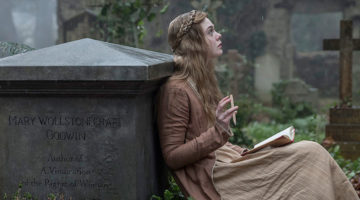TIFF 2012: Director Lee Daniels discusses 'The Paperboy'
Raw, uncomfortable, and so far undeniably divisive, Lee Daniels’ The Paperboy is deeply personal and unapologetic—exactly how Daniels wants it.
A film less about the story and more about flawed, honest, and secretive characters in it, The Paperboy is as unnerving and challenging as Daniels’ previous film, Precious, but devoid of such a sympathetic figure.
“I know all these people,” says Daniels in Toronto. “I can’t tell a story unless I know the truth in how to articulate what I’m trying to get people to do. Each of these people are either family members or friends or personal experiences.”
Charlotte Bless is the blond southern belle played by Nicole Kidman who corresponds and falls in love with the incarcerated Hilary Van Wetter (John Cusack), modeled after women in Daniel’s life growing up, including his sister of whom he introduced to Ms. Kidman to glean a deeper understanding.
For Hilary, Daniels recalls his brother, currently in jail, though as Daniels jests, “not as demented as Cusack’s character.” Macy Gray is Anita, housekeeper to the Jansen family, and motherly figure to young Jack (Zac Efron) evokes Daniels aunt. Matthew McConaughey plays Jack’s older brother Ward, and is based on a guy Daniels dated when he was younger who was ostracized from family and community, and committed suicide.
The director himself is in the film, too. “There is a little bit of me in Zac running around in his underwear, in listening to Macy’s character,” he says, though admittedly he did not have Mr. Efron’s body, he jests. Many of the characters in the film are not as they seem, hiding what they can and feel they should to survive or thrive in southern Florida decades ago. “In the ‘80’s I pretended to be something that I wasn’t so I could get ahead; I was embarrassed with the environment I grew up in,” which becomes very apparent with characters in the film.
Daniels has invested much into a film that is certainly more a character study than a plot-driven whodunit, as the crux of the story finds journalist Ward trying to acquit Hilary. The depth and breadth of the characters helped to get big stars to join on, but much discussion, that is criticism, comes from what Daniels has captured of these actors on screen.
“People say it’s shocking, but I don’t know,” Daniels ponders about one scene in particular where Ms. Bless urinates on Jack after he succumbs to jellyfish stings. “What is shocking is that we don’t see the truth more often.”
In addition to being ‘cured’ by Ms. Kidman, the young and talented Mr. Efron can be seen dancing around in his underwear, and fighting with David Oyelowo’s character Yardley, an upper class snob of a journalist. Elsewhere, Ms. Kidman and Mr. Cusack engage in what may be described best as air-sex, where the two climax while sitting across from each other in prison, alongside Jack, Ward, and Yardley (the so-called paperboys). It is not at all a feel-good movie, Daniels stresses, and to be sure you will have a reaction immediately after, which may or may not include needing a shower.
“I look at it as art, some people look at it as garbage,” Daniels says, matter-of-factly. “I relish that [these actors] trust me with their acting instrument, and they will do whatever I tell them as they want to serve me and story.”
“I want people to either hate it, saying it’s the worst ever, or love it and be floored by it. That’s what I want.”




